The first edition of our free monthly online training session for the year 2020 was a huge success as the training group was filled. Before we go into the details of the training, meet the facilitator of the January edition of our monthly online training session.
Facilitator: Tolu Osunsanya-Oyedeji, MD/CEO of Chicken Villa Integrated Farms
Tolu Osunsanya-Oyedeji, the MD/CEO of Chicken Villa Integrated Farms, Ibadan, is an organic farmer, certified organic agricultural trainer, mentor, organic certification consultant and ,most importantly, an Agripreneur.
She is a member of the Nigerian Organic Practitioners Association of Nigeria and an active member of the Poultry Association of Nigeria and the Oyo State Agricultural Development Farmers Association. She is also a member of the Pig Farmers Association of Nigeria and an alumnus of the great University of Ibadan.

MD/CEO of Chicken Villa Integrated Farms, Ibadan
Tolu Osunsanya-Oyedeji was awarded the “Best Organic Farmer of the Year 2019” by green initiatives and splash FM of Oyo State.
She was the winner of the Dragons Den competition of the last West Africa Organic Council 2019 International Conference. She is happily married with children.
She trained us on the fundamentals of Organic Poultry Farm using the following highlights:
Training topics:
- Organic agriculture in Nigeria: The myths and the facts
- Fundamentals of organic poultry farming in Nigeria
- Importance of effective biosecurity on the farm. (The organic/natural Agric approach)
- Effective organic poultry management system for beginners
- Supplements making in organic poultry
- Becoming an organic poultry Agripreneur
MODULE 1 & 2:
Organic Agriculture in Nigeria "the myths and the facts"
The fundamentals of organic poultry farming in Nigeria
The words – Organic Poultry – have so many definitions depending on the way one chooses to practice. Most people follow USDA or IFOAM standards. Countries like Nigeria, Kenya, Uganda, Zimbabwe, and other countries have created their own standards. The Nigerian standards were partly created by the Association of Organic Practitioners of Nigeria (formerly NOAN) but other organic bodies are now doing a review to upgrade the current standards.
In Nigeria, organic poultry farming simply inculcates the use of herbs from our surroundings and herbal supplements formulated to raise our poultry birds. For the purpose of today’s training organic poultry shall be termed as the raising birds from day-old chicks till maturity, without the use of antibiotics, chemical vaccines or synthetic chemical drugs/ products to boost the immune system of birds, growth boosters and vaccine.
In the training, the facilitator tackled everything concerning raising birds using herbs and supplements while discussing the raising of the following birds
She also talked about management practices on the Farm.
MODULE 3: EFFECTIVE BIO-SECURITY ON THE ORGANIC POULTRY FARM
Biosecurity is a system or practice designed to prevent the spread of diseases in your poultry farm or pen. It is accomplished by maintaining a system in such a way that there is minimal traffic of biological organisms ( viruses, bacteria, rodents etc ) across the borders of your farm or Khola. Key biosecurity measures include;-
1. Reduce where possible the movements of people, vehicles or equipment into areas where farm animals are kept. This will minimize potential contamination with manure, slurry and other products that could carry disease.
2. Where direct contact with farm animals occurs then cleanse and disinfect protective clothing, footwear, equipment, vehicles before and after contact, or where practicable use disposable protective clothing.
3. To avoid disease in a poultry flock, it is essential to provide clean drinking water and food, preferably indoors to prevent contamination by wild birds and other animals.
4. Other measures include isolating new birds, preparing a plan should the flock need to be brought indoors, and thoroughly cleaning and disinfecting housing at the end of a cycle.
In essence, it is important we maintain a clean and healthy environment;
- Clear bushes within the farm, use neem oil as an organic insecticide to chase away insects.
- A clean and healthy environment will give little or no room for vectors. For rodents, make sure there is no space for rodents to penetrate the pen, nor gain access to the storehouse where you keep birds’ feeds.
- For birds on free-range, always regulate the pasture space to avoid worm build up. All the same, vectors are mostly insects, worms, few predators, rodents etc.
The most common vector we have noticed that causes major disease outbreak on Nigeria poultry farms is the RODENTS MOSTLY HOUSE RAT/MICE/BUSH RATS. The easiest way to get rid of this problem naturally on smallholder farms is the use of the “1finger” fishing net to lay a trap at the walkway of the vectors.
MODULE 4: EFFECTIVE ORGANIC POULTRY MANAGEMENT
Things You Need to Start Your Organic Poultry Farm

1.Cage/Pen/Brooding box
2.Source of heat
3.Source of lightning
4.Wood shavings and newspaper: wood-shaving should be kept very dry and changed every 2-3 days if wet or damp. You don’t want your birds to have diseases due to ammonia build up.
WHY NEWSPAPER?
At that tender age, the chicks are still curious and they’ll peck on anything. Newspaper is used to enable the chicks to know the difference between feed and woodshaving and can be removed on day 3.
5. Drinkers ratio 20:1
6. Feeder ratio 20:1
7. Weighing Scale
8. Supplement (Lab, Tajiri, Ginger&Garlic Extract, Multivitamins and Calcium Supplement)
9. Feed: super starter day 0 to 14, Starter day 14 to 28 and finisher day 29 until slaughter for broilers
10. Chicks of good quality, alert and with healed navels
11. Prebiotics are the armies that clear the way for healthy micro-organisms in the probiotic to take over. And ensure the healthy well-being of the birds. As well as fast growth and increased body weight.
- Probiotics is a culture, containing healthy micro-organisms used in the competitive exclusion of unhealthy micro-organisms resident in the birds’ gut or say digestive tract. When you populate through drinking water administration, they take over the bird’s gut flora. E.g. lactobacillus serum.
- Phytobiotics includes all the prebiotics and other herbs used in boosting these birds’ immunity and maintaining healthy living. For you to succeed in organic poultry farming, you must have the above-mentioned tools.
12. Management practice: The First 0-7days of birds is very critical. Any mistake at this stage will spell loss as you progress into later days. Newly arrived birds are immediately removed from the delivery cartons and placed inside the already illuminated and heated brooding pen or a brood box. At temp 32-34 degree Celcius from day 0-5.
Please discard the delivery cartons once you remove them. Many farmers make the mistake of even using it as a bedding for the newly arrived birds.
Birds newly arrived day-old chicks need a temperature of 32-degree Celcius to keep them warm and help regulate their system as they are yet to develop their digestive system. Many Farmers neglect this aspect and thus contributes to 45% of birds health hazard. This period is called the immune phase of birds.
LITTER MANAGEMENT:
This is a very important aspect of poultry management. Wood shavings are to be replaced every 4-5days at the maximum.
SORTING:
This is a secret in achieving a greater percentage of uniformity in birds. I encourage sorting from 3weeks or day 21. Especially for broilers and noilers.
WATER:

Always provide a good source of water for your birds. NO chlorinated water, River water or stream. Rainwater that is properly collected and stored is good, well and borehole are also perfect. Change their water every day and ensure they are clean. Give 10ml of the three supplements in 4 litres of water every day.
During the brooding stage, all birds have a similar brooding pattern from first 0-21 days of age.
LIGHTNING:
Birds need light to see and eat. You must provide light for the birds at all time for them to quickly gain weight. However, there are lighting programmed for birds that you need to adopt. We will give you a lighting program you can adopt for your birds, they differ greatly as they grow.
The quality of chicks also plays a major role in organic poultry farming and the facilitator shared some important information in that light.
Qualities Of A Good Chick:
1. Don’t choose an abnormally small chick. Runts of any hatchery often have health problems down the road. You will want to pick up and hold the chick you are considering choosing. It should feel solid and be of a good weight for her size.
2. It should be very active and wriggle a bit to get out of your grasp.
3. It should be happily peeping with bright clear eyes, but a strident chirp could be trouble; it could signal it’s been chilled (chicks can often die even days later if they are allowed to get too cold) or in pain.
4. Its eyes should be clear and alert.
5. The top and bottom of her beak should line up correctly, and not be scissored or crooked. Her abdomen should not be distended or raw and red, nor should her vent be wet.
6. Check her vent. It should be clear of any poop. A buildup of poop or evidence of diarrhoea could signal vent gleet, pasty butt or other intestinal issues. Seeing a puffy, fluffy butt is a good sign.
7. Count its toes and make sure none seem bent in the wrong direction or abnormal. Set the chick down and be sure it’s steady on its feet and not disoriented or wobbly. It shouldn’t be standing with its eyes closed or swaying.
8. And finally, check that its feet seem centred under her and not splayed out to the sides, which can indicate spraddle or splayed leg.
Questions
After the training, participants had a period of questions with the facilitator. Here are some questions related to modules 1,2 and 3:
Questions: What’s the difference between broiler and noilers?
Response: As a primary source of animal protein, the poultry sector offers a valuable repository to bridge the gap between demand and the availability of balanced nutrition.
The commercial market depends on just a few broiler breeds or types. These birds don’t make good pets (for those that get easily attached) if you’re not in the market for meat. They’re not bred for longevity, and size creates issues in older birds. Foods derived from animal products are important sources of nutrients in the human diet and play an increasing role in human nutrition in the future.
Conclusively, all broilers are hybrids. They are an industrial continuation of the cross between the Cornish and White Plymouth Rock genetics. The Cornish gives the traits of more meat, broader breast and thick thighs while the plumage is from the White Plymouth.
There are also coloured broilers but we don’t have much here, they are mainly used for organic and free-range because they get to target weight at 11 weeks under proper management, unlike the white ones who attain that in 6-8 weeks. Hubbard and Cobb’s have such coloured broilers. Another example is the Freedom Rangers.
Chicken breeds fall into three basic categories — egg producers, meat birds, and dual-purpose types as we all already know.
Broilers, in the second category, have been engineered to mature quickly, ready to market as early as 6 weeks of age and sometimes earlier depending on your feed formula. This progress in breeding and nutrition has resulted in broiler strains having higher performances today than ever before.
The Arbor Acre Plus:
The Arbor acre plus strain are available in two types: one which produces sexable broilers and one which produces all fast feathering broilers. The sexable type and the non-sexable type. Both types will have similar growth, feed conversion and meat yield characteristics. The nutritional requirements for the broilers will also be the same. Also, the Arbor Acre Plus is just a slight genetic improvement on the regular Arbor Acre; less feather and more meat gain in a shorter time than the Arbor Acre. For broiler farmers, the ‘plus’ makes all the difference.
They are characterized by strong growth, very good feed conversion ratio, excellent viability, and exceptional meat yield at processing. They have close resemblance with the Arbor Acre. With good management, they attain table size with 7-8weeks. Could be shorter with the addition of some tweaks. There are the free-range slow-growing Hubbard broilers. They attain table size in 70 days plus or Minus depending on what they’re fed with i.e nutrition.
Hubbard was created to offer the best meat yield at the lowest live cost. Their qualities, in terms of viability and reproductive persistence, provide a significant economic benefit.
The Marshall Strain
The Marshall strain is known for its gigantic height and its massive weight. They are raised for more than 56 days which is the average number of days it takes for broilers to hit table size. Its FCR (Food Conversion Ratio) is quite poor compared to other strains. Marshall grows taller than other strains when it gets to 12weeks+ and is usually a preference for people who like birds with height. The Easterners are always particular about this breed.
The Ross 308

The Ross 308 is a peculiar bird known for its height, lean meat, soft breast bone, height, swift growth, as well as fewer feathers. They reach table size between 6-7weeks. Bodyweight, broad breast, less fat, lean meat taste/texture and size of drumsticks are the attributes of the Ross. There are a number of farms/hatcheries in Nigeria that churn out chicks.
Generally, people buy these birds without really knowing and understanding the strains they’re buying. For each strain, there’s a management guide as well as procedures in raising them. They might all look the same at day old but to each strain comes different management approaches and nutrition. I’ll list a number of Farm/hatcheries and the type of birds they have.
Farm Broiler Strain
Zartech Cobb, AA
Agrited Ross
CHI Arbor Acre+
Niger Chicks Pure Line Genetics (PLG)
Farm Support Arbor Acre
AMO Arbor Acre+
Supreme Chicks Abor Acre+
Sayed Ross 308
Unique Chicks Marshall
Tuns Abor Acre+
Fidan Hubbard
RTO Marshall, Hubbard
Nastech Abor Acre+
Obasanjo (OBJ) Marshall
Max Abor Acre+
Bnot Harel Hubbard, Abor Acre+
Broiler meat is sold whole or cuts into parts for individuals and families who could not afford whole chicken
Noilers
Noilers are a cross between RIR and broiler breeders. The breed was engineered in Kenya and the result was named KUROILER. The fertile eggs from these broiler breeders were imported into Nigeria by AMO Farm which they in turn named Noiler after hatching the eggs.
Noilers are beautiful birds which attain table size within 14 weeks with a weight of 2-2.5kg. They look very much like local chickens only that they’re much bigger, meatier and they also have this natural flavour in their meat. Noilers come in 4 distinct colours White, Barred back, black and brown. They don’t consume as much as broilers and can be allowed to free-range. Noiler hens are not good egg layers as they lay only 3-4times a week. The hens can either be raised for meat or for eggs if you’re the type that loves fresh farm eggs. Noilers come unsexed from the hatchery. This means males and females are sold together in a transport carton. Unsexed means it is difficult to distinguish males from females till they reach 4-6 weeks
READ MORE: The Fundamentals Of Organic Poultry Farming In Nigeria (2)
Click to read on BECOMING AN EFFECTIVE ORGANIC POULTRY AGRIPRENEUR and SUPPLEMENTS MAKING IN ORGANIC FARMING

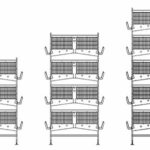


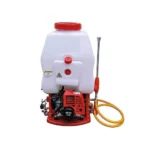
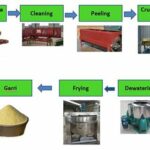
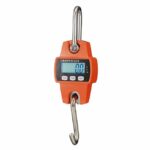
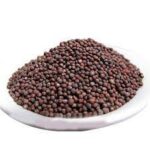






9 thoughts on “Fundamentals Of Organic Poultry Farming In Nigeria (1)”
Please I want to join the next training.. I want to venture in Organic Poultry.. Broilers to be precise..
Hello Moses,
Thank you for reaching out to us,
To get an update on our next training, kindly subscribe for our training newsletter HERE
Don’t forget to place an order for your broilers through the link below:
https://afrimash.com/vendors/chicks-hub/
Some current prices of broilers from different hatcheries:
NASTECH (Arbor Acres Plus) Broilers: NGN 15,500
FIDAN (Arbor Acres Plus) Broilers: NGN 14,750
ZARTECH (Cobb 500) Broilers: NGN 15,000
CHI (Arbor Acre Plus) Broilers: NGN 15,000
OLAM CHIKUN (Cobb 500) Broilers: NGN 16,500
SAYED Broilers: NGN 16,000
AMO (Arbor Acre Plus) Broilers: NGN 15,500
NPG (Cobb 500) Broilers : NGN 16,500
Cascada (Arbor Acres Plus) : NGN 15,500
Vertex Broilers (Arbor Acres): NGN 15,000
Agrited Broilers (Ros 308): NGN 17,000
You can follow us on Facebook for an update on various training calendar:
Click the link below to follow us:
https://web.facebook.com/afrimashnigeria/
Thank you for choosing Afrimash
Please ma’am, which strain of layer birds as well as broilers will you recommend. The layers I have now produce extremely small eggs. Please help me, I want to restock. I need your phone number. Thanks a lot, I’m Justina,
Hello Justina,
Thank you for reaching out to us,
As regards your enquiry, we have a variety of layers and broilers on our website and we usually recommend the;
Isa Brown AMO Pullets N 14,500
Isa Brown CHI Pullets N 14,500
Agrited Broilers (Ros 308): NGN19,750
When well fed and taken care of, they achieve maximum weight and we have had a lot of positive reviews from our customers
You can place an order via the link below:
https://afrimash.com/vendors/chicks-hub/
You can also reach out to us via;
Call: (+234) 809 409 1115
WhatsApp: (234) 808 280 8271
As we plan to reach out to you
Thank you for choosing Afrimash
Pls when is the next training&whts the current prices for the birds…
Where is your farm located and address how do I placed order let me knw the terms delivery pickups booking days
Hello Hugoc,
Thank you for reaching out to us
Our next training is holding this Friday on Crop production, click the link below to subscribe for notification:
https://afrimash.us14.list-manage.com/subscribe/post?u=b225f459ead90bcbb40b93334&id=732e10ce94
Here are a few updated prices for our birds:
ZARTECH (Cobb 500) Broilers: NGN 10,000
CHI (Arbor Acre Plus) Broilers: NGN 10,500
AMO (Arbor Acre Plus) Broilers: NGN 10,500
NPG (Cobb 500) Broilers: NGN 10,500
Agrited Broilers (Ros 308): NGN11,750
To view all our updated and current prices from time to time, click the link below:
https://afrimash.com/vendors/chicks-hub/
Afrimash is an e-commerce platform for farmers, where distributors and manufacturers of farm inputs meet their customers to sell farm inputs to them,
To place an order for your birds, click on the buy now button and go to your cart to update the shipping address
Our delivery days are Mondays and Thursdays, and the cost of shipping is based on your shipping address,
You can view our pickup points for each state through the link below:
https://afrimash.com/pickup-points/#1552907564255-1e8f3451-04f9
You can also reach out to us via:
Call: (+234) 809 409 1115
WhatsApp: (234) 808 280 8271
Thank you for choosing Afrimash
Thanks for this highly informative article.
Hello Ajala,
Thank you for your comment. We are glad to know you found the post insightful.
Thank you for this material. It is a masterpiece production.
Please when is the next training coming up?
Kind regards,
Odesanmi